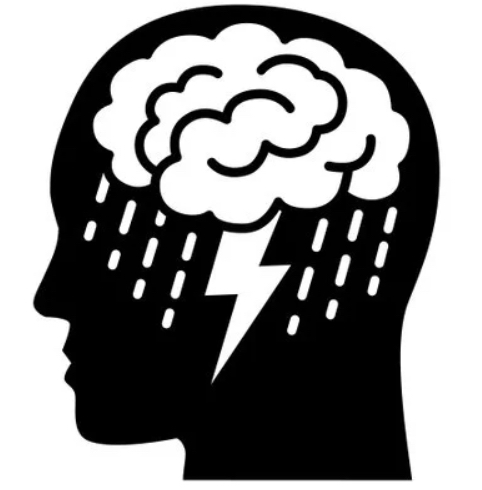
According to polls, most Americans believe there is a mental health crisis afflicting society. They cite many factors for this calamity. Traditionally, the major sources of stress for a majority of adults have been personal finances, current and political events, and work stressors. Combine this with a rising sense of isolation, fear, and paranoia, especially in the aftermath of the COVID-19 pandemic, the opioid/drug outbreak, the war in Ukraine, political upheavals, etc. These unrelenting social concerns exacerbate stressors such as feelings of disconnection to traditional psychosocial and spiritual sources of support. Politicians and malevolent troublemakers stir this stew of discomfort by manipulating valid emotions to weaponise fear in the name of political expediency. When fear becomes crushing, it adds a sense of no place to turn to for honest and wise counsel, as opposed to politicized rhetoric, something once provided by parents, clergy, and counselors. Homelessness and mental illnesses in children, teenagers, and adults are the inevitable results.
Imagine including in this powder-keg of emotions many guns, increased far right activity and racism, gender biases, brief attention spans, impulsiveness, and lack of emotional control. It isn’t difficult to predict the rapid rise in violence. This explosive stew of individual and social ills leads to despair, being on guard, hypersensitivity — issues typically associated with PTSD-associated disorders. We are, in fact, being traumatized by what seems like an out-of-control life. And unfortunately, only about 20% of us seek and receive mental health services. This reluctance to seek solutions for what is obviously overwhelming chaos is blamed on uncomfortable feelings talking to loved ones about issues and concerns about privacy, plus the stigma that still attaches to mental problems.
If there is an answer, it’s going to take a wholistic approach—and a concerted and common desire to solve the problem. People at the individual, community and societal level have to decide they have had enough, reached bottom, and sincerely desire to address the problem seriously. Social solutions require community and communication, assets currently in short supply. Thus, I want to focus more on what can happen at an individual level and what each of us can do to help.
It might be helpful to get a handle on the root of the crisis to consider what psychologists have known for a long time. In order to feel truly human and live fulfilled lives, we have to meet certain undeniable needs. A good starting point is Abraham Maslow’s hierarchy of those needs. Maslow argued for at least three major categories: physiological, socio-psychological, and spiritual. Physiological needs (food, shelter, etc.) make up the basement level of our being and must be met first to provide a stepping stone into higher levels of being. Spiritual needs (what he termed self-actualization) might be considered the apex of human nature. Between the two are the socio-psychological (social connections) needs.
From this humanistic perspective, we can imagine the number of factors mentioned previously, which underlie the mental health crisis we are experiencing, working to disconnect us from sources that nourish and promote well-being. Homelessness, malnourishment, alienation, loneliness, and lack of moral structure are conditions that exacerbate the decline in mental health because they produce severe disconnection and do not promote and provide our human needs. From an economic and socio-political perspective these problems appear solvable yet have proven to be intractable.
There is a different way of seeing this calamity and to ask, is there more to life than this? For those lost in the chaos, what I am about to say makes absolutely no sense. Because to appreciate this perspective, one must move outside of the storm. Imagine a raging thunderstorm, tornado, or hurricane. If you are inside, nothing else matters—it is all-encompassing, pervasive, unending. Yet, outside of the region or by taking a plane and flying above the clouds, you can see something different. Likewise, it is paradoxical yet possible to know that underneath the apparent madness of life there is a subtle presence, grace and stillness that can be quite beautiful. We all yearn to touch that. Its grace is available to anyone who dares and cares. And it begins by taming our uncontrolled mind.
This poem comes from the Hua Hu Ching of Lao Tzu, who 2500 years ago knew this truth/solution to our modern problems. He provides the answer (discover the harmony in your own being) in a clear and direct way, or at the very least, points you in the right direction.
Why scurry about looking for the truth? It vibrates in every thing and every not-thing, right off the tip of your nose. Can you be still and see it in the mountain? The pine tree? Yourself? Don't imagine that you'll discover it by accumulating more knowledge. Knowledge creates doubt, and doubt makes you ravenous for more knowledge. You can't get full eating this way. The wise person dines on something more subtle: He eats the understanding that the named was born from the unnamed, That all being flows from non-being, That the describable world emanates from an indescribable source. He finds this subtle truth inside his own self and becomes completely content. So who can be still and watch the chess game of the world? The foolish are always making impulsive moves, but the wise know that victory and defeat are decided by something more subtle. They see that something perfect exists before any move is made. This subtle perfection deteriorates when artificial actions are taken, So be content not to disturb the peace. Remain quiet. Discover the harmony in your own being. Embrace it. If you can do this, you will gain everything, And the world will become healthy again. If you can't, you will be lost in the shadows forever.
